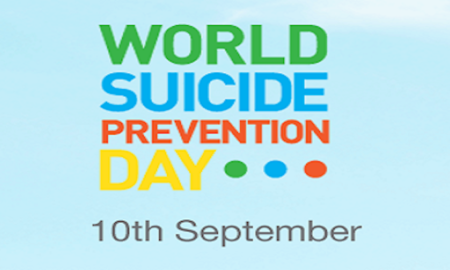Myths About Suicide

The 10th September was World Suicide Prevention Day.
World Suicide Day is an annual day to encourage awareness about the single biggest killer of men under the age of 45 today.
Suicide affects men and women of all different races, cultures, ages, religions and so on and the highest risk group are men under 45. To continue with a series of posts focusing on suicide this week, in this post I want to highlight a few common myths about suicide and talk about what the reality is behind each.
The Myths

MYTH: Talking about suicide to someone does not mean they’re more likely to do it
FACT: We may feel that everything could hinge on the words we say. We may feel that someone is more likely to take their life if we’ve spoken words linked to death, dying or suicide. This is all so incorrect and such a sad myth. If someone is wrestling with suicidal thoughts, one of the clearest ways you could help them is to be very direct and ask clearly. Talking openly about suicide may just be what is needed to help support someone to rethink their decision.
What’s the worst they could say? “No way, you’re crazy, how could you think that of me?” But what’s the worst thing that could happen if you don’t say it?
MYTH: Those who talk about suicide are not serious about doing it.
FACT: Quite often, if someone is thinking about suicide, they may have tried to communicate this to someone in some way. They may have even shared their plans with someone.
MYTH: If someone has decided to take their own life, there’s nothing I can do to stop it.
FACT: It may be that someone who has suicidal ideation dips in and out of feeling actively suicidal. It may not be a constant feeling and so getting timely help and support could make all the difference.
MYTH: If someone has been suicidal before, they will always be suicidal.
FACT: Being actively suicidal may actually be quite short-term and specific to a particular situation. Someone could have periodic suicidal thoughts and they may not necessarily be constant. Someone who experiences suicidal thoughts is able to still continue with day to day life.
MYTH: Only people with mental disorders can be suicidal.
FACT: Not all those with a mental health disorder have suicidal thoughts and not all those who suicide have a mental health disorder.
MYTH: Most suicides happen out of the blue and without warning signs.
FACT: The reality is that there probably have been one or more of several warning signs that someone may suicide. Suicide can happen out of the blue but it’s really important to be familiar with the warning signs.
MYTH: Someone who has suicidal thoughts really wants to die.
FACT: Not all those with suicidal behaviour actually want to die. Many of them may want to escape the mental pain they feel and others may be ambivalent about living or dying but death may not actually be a motivation.
If you have been or are affected by suicide in any way, talking to someone can help.
You may also be interested in...

How Should We Be Talking About Suicide?
Today is World Suicide Prevention Day. World Suicide Day is an annual day to encourage awareness about the single biggest killer of men under the age of 45 today. As…
Ready to Make a Change? Book an Initial Consultation Today
If you have any questions at all about therapy or would like to make an appointment, get in touch. I will usually be able to respond to you within 24 hours.
